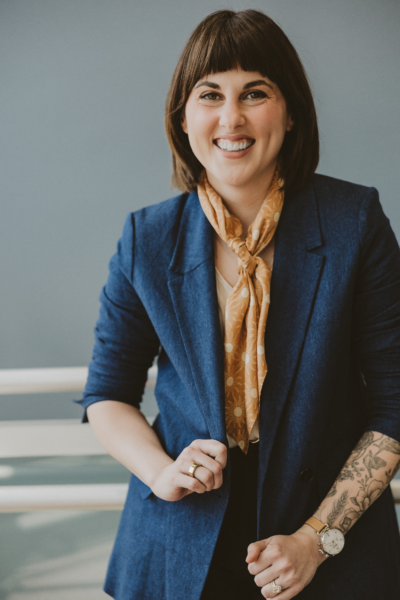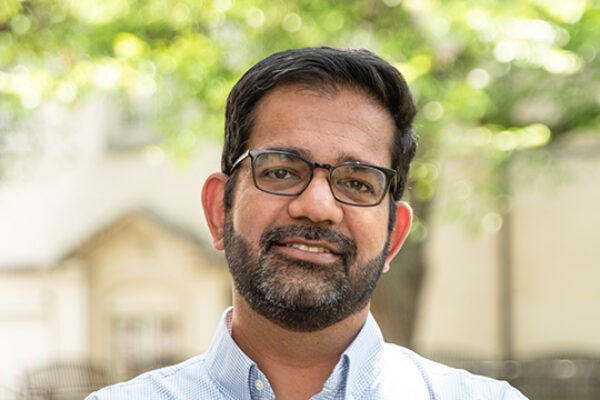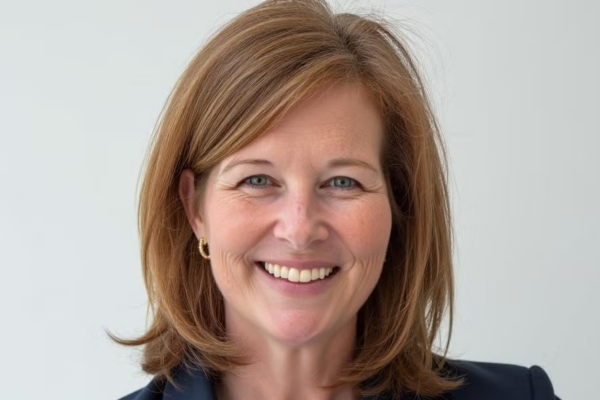High-Impact Research
Ph.D. alumna is driven by a desire to connect academics and standard setters

It’s the autonomy and the potential real-world impact of her work that most appeal to Shannon Garavaglia, Ph.D. ’20, in her career as an assistant professor of business administration at the University of Pittsburgh. She reflects on the joy she finds in an academic environment and on her hope to help researchers work more productively with standard setters.
Q: After earning your BBA, your first job was in auditing. Why did you leave that position to pursue a doctoral degree?
A: I spent a year working as an auditor and realized quickly that wasn’t what I wanted to make a career of. One of my undergrad professors suggested I consider a Ph.D., and the more I learned about it, the more I fell in love. The type of research I do, we get to blend psychology with business, so it’s really interesting and every project keeps me engaged. This career is something that I never would have expected as an undergrad. On top of that, I try to focus on research that can contribute to practice — my experience at McCombs really shaped my passion in that regard.
Q: What are the most challenging and most rewarding aspects of your work?
A: The hardest thing is juggling time, but in some ways it’s also the most rewarding because I get to pick everything I spend time on. If I don’t love something I’m working on, I only have myself to blame and can usually find an off-ramp for that project.
At the highest level, this profession is very entrepreneurial but with more stability. I have a lot of autonomy and enjoy the creative aspect of coming up with new research projects, but then I can also rely on a steady paycheck. So, to me, it’s the best of both worlds.
At the highest level, this profession is very entrepreneurial…
Shannon Garavaglia, Ph.D. ’20, Pitt Faculty Member
Q: Which of your research projects would your industry colleagues be excited about?
A: Before starting my position at Pitt, I spent a year as an academic fellow at the Financial Accounting Standards Board (FASB). My goal there was to help the standard setters learn how to better incorporate academic research into the standard-setting process.
One of my current projects expands on that work. We interviewed standard setters about how they use academic research and what they struggle with, and we’re writing a paper that we hope will better inform the academic community about how research findings are incorporated into this process. Our goal is to educate the academic community about how to undertake research that has the potential for a greater impact in industry settings.
Q: How are you using your research to inspire your current students?
A: For my undergrads, I think my experience with standard setters brings a lot of credibility to the classroom. I’ve presented several of my research projects to the FASB, as well as the international equivalent (the IASB), and I always see my students’ eyes light up when I share more about these experiences. Hearing how their professors’ research connects to the standard-setting process helps to bring a more personal aspect to the formal accounting rules and regulations we are learning in the classroom.
As far as the doctoral students I work with, this same experience inspires them in a different way. They’re excited about the potential to conduct research that not only meets top-tier academic standards but also makes a real-world impact.
Q: What’s it like to come full circle, having doctoral students under your mentorship?
A: I constantly hear the voices of my McCombs mentors in my head and find myself sharing their wisdom. For instance, I’ll always remember what Steve Kachelmeier would say when we started worrying about the length of time it took to get an academic review back. He’d say, “No news means no news.”
It is tempting to spin a story based on anecdotes or read between the lines to infer a conclusion, but that advice from Steve is a reminder about the limits of inference and the fact that the absence of data should not be mistaken for insight or knowledge. It’s something I’ve repeated to colleagues and students when we find ourselves speculating about an outcome without sufficient data to accurately reach a conclusion. It’s a simple message that applies to a lot of things in life.
Story by Judie Kinonen
About this Post
Share:


